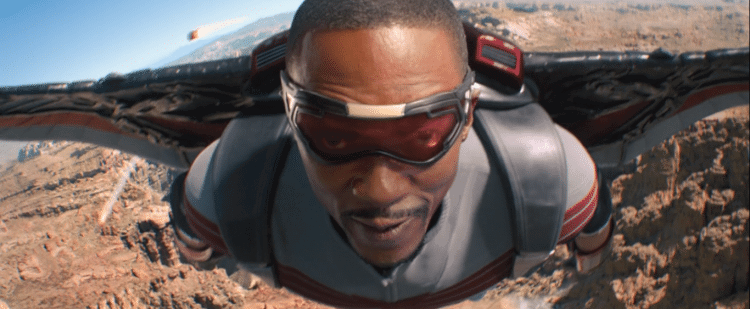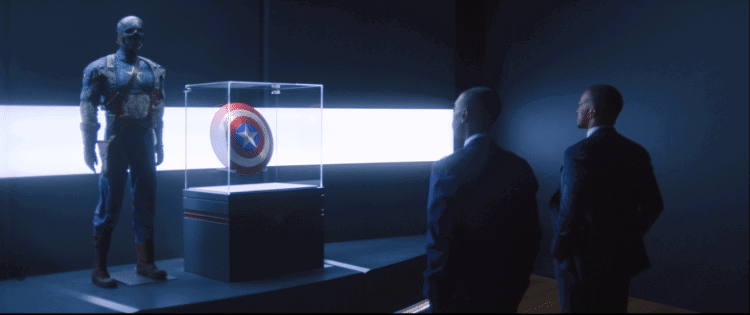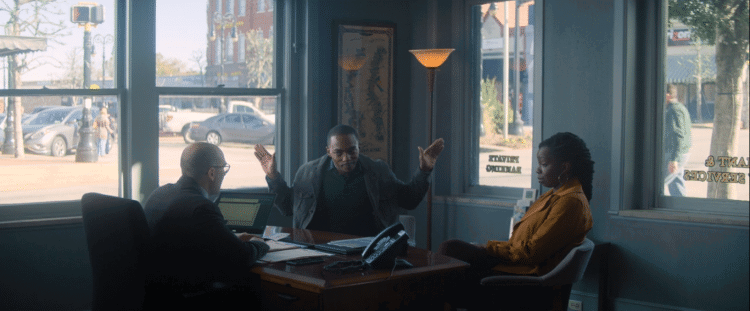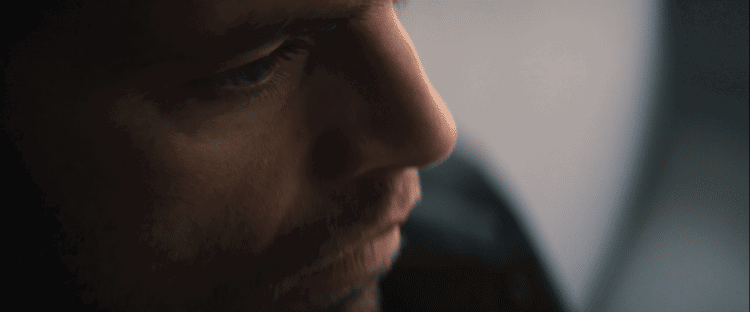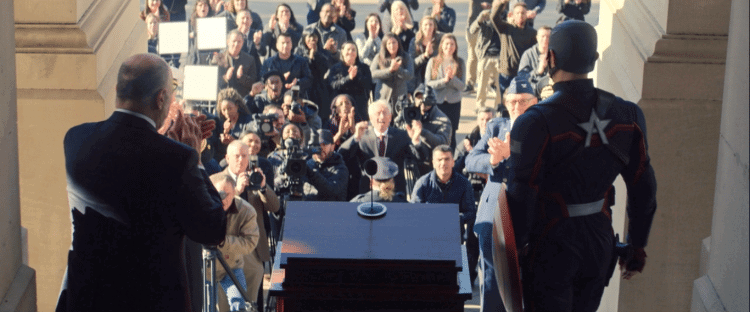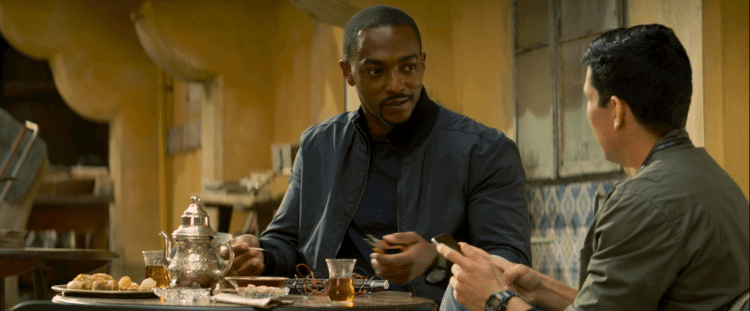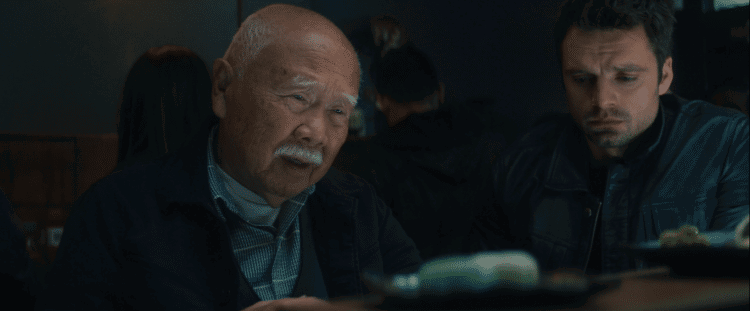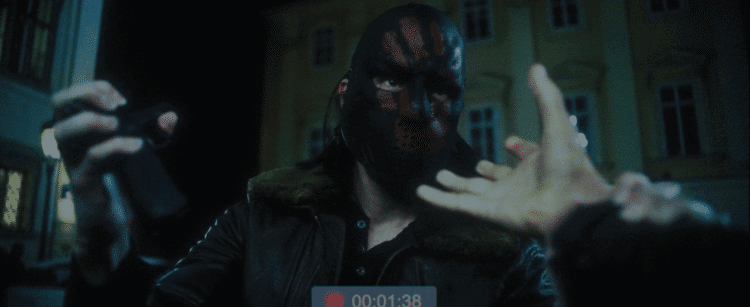To become an expert, an old adage says, you need to practice for 10,000 hours. Marvel Studios hasn’t worked at mastering the origin story for quite that long, but it has introduced dozens of characters across 23 films and one television series. The practice clearly paid off in Falcon and the Winter Soldier’s premiere, which masterfully adds depth to heroes Sam Wilson and Bucky Barnes and proves why these MCU B-Listers are the characters most capable of answering pressing questions about the racial divide in America, the legacy of Captain America, and PTSD.
“New World Order” tells its story across two separate plot threads, setting up Wilson and Barnes’ personal conflicts while adding more detail to their backstories. The burden of legacy threatens to squash each, with Wilson (Anthony Mackie) coping with being named Steve Rogers’ successor and Barnes (Sebastian Stan) making amends for his misdeeds as a brainwashed HYDRA agent. Their stories don’t cross before the episode closes, but both characters make the most of the time alone by showing audiences what an average day in the post-Captain America world is like.
Sam Wilson’s storyline is the more successful of the two, in no small part due to Mackie’s performance. Steve Rogers had a severity that wrapped everything he did in a noble-to-a-fault aura. Mackie’s Wilson has the same sense of duty that drove Rogers, but he adds a comedic wrinkle that makes the protégé more self-aware and relatable to the average person. When he needs to secure a loan to save the family business, Wilson tries to leverage his Avengers credentials to make up for lack of income. It’s impossible to envision the MCU’s Steve Rogers pulling the same move and equally difficult to see him getting the same result; Wilson’s request is denied.
Race plays a major role in Sam’s story, and his status as a black superhero appears to be a major point of interest for the series. The scene with the accountant is filled with powerful racial imagery. Even after denying Sam’s loan, the entitled accountant asks him to pose for pictures. Sam is willing to play by the rules, but his sister Sara is not. She knows exactly where the meeting is headed, and she indicts the accountant and the system he upholds with a powerful line: “Funny how things always tighten around us.” The accountant’s obliviousness drives the point home further.
While Sam battles failures built into the American economy, Bucky Barnes struggles within its substandard mental health system. His mandatory meetings with a therapist are mini-hostage situations, where Barnes either speaks or gets reported to government officials. Although she means well, the therapist puts pressure on Bucky instead of helping him work through his trauma. Still, she makes an apt point about the loneliness he must feel. Without Steve, Bucky is a man out of time and without friendships. His mind is a prison driving him mad, and that makes him an interesting character. Director Kari Skogland uses ultra close-ups to convey how confined Bucky feels, but the scene feels claustrophobic to a fault. The shots are framed in weird angles that are more distracting than intense.
Even so, there’s an emotional weight to Barnes’ story that viewers expecting non-stop action from Falcon and the Winter Soldier might not be expecting. The Bucky Barnes of the early 1940s was a confident ladies’ man, and he had a warmth that made him a natural best friend for Steve Rogers. 2020s Bucky panics when Yuri, his elderly neighbor, sets him up with a bartender. He’s cold and distant, and the dark grey palette featured in his scenes feel like something more at home in a Zack Snyder production than anything Marvel.
Trauma is becoming a recurring theme on Marvel’s Disney+ offerings, and that makes its shows feel more relevant to our time. The MCU’s earth has been through hell, and its people are tired. The coronavirus pandemic and the deep cultural divide tearing American society in two might not be as traumatic as having half the world disappear only to reappear five years later, but seeing these characters cope with trauma in their world makes them more relatable and useful for understanding ours. It’s a smart direction for Marvel, and one that makes Falcon and the Winter Soldier uniquely intriguing.
Social media isn’t free from Falcon‘s commentary either, although here it doesn’t have much new to say. Falcon’s army pal Torres (Danny Ramirez) introduces another group of villains, the Flag Smashers – a name so ridiculous the show feels the need to point it out – and this group meets in online forums to discuss pro-Thanos ideology. Their dependence on modern technology seems intended to make the group feel threatening and current, but it has the opposite effect in practice. Torres is able to crash one of their meetings just by joining the forum, and it feels like U.S. forces could dismantle the group if two or three more agents infiltrated their riot. The Flag Smashers may develop into more interesting characters as the series develops, but right now they’re too disconnected from Sam and Bucky’s personal conflicts to be interesting.
U.S. Agent’s reveal at the end of the episode works so well because his existence is an immediate threat to Falcon’s optimistic worldview. Sam probably should have called Peter Parker to ask about the consequences of turning over a bestowed relic to someone else, but his shortsightedness should not have culminated in a smug white guy being named the new Captain America. Wilson looked more gobsmacked than angry watching the ceremony, but his faith in people’s good nature is being tested here.
If the pilot is any indication, Falcon and The Winter Soldier is going to be another strong Marvel entry on Disney+. It continues the legacy of the Captain America films by exploring challenges facing American society through nuanced characters. Its greatest challenge will be combining the dark and gritty story of Bucky Barnes with Sam Wilson’s Cap-like optimism, but the pilot created a rock-solid foundation to build upon.
Falcon and the Winter Soldier Awards: “New World Order”
MVP – Sam Wilson: Anthony Mackie’s Sam Wilson has always been a revelation in the films in which he’s been featured, but his supporting role limited his overall impact. Falcon and the Winter Soldier wastes no time showcasing how fun this character is, blasting off with a thrilling aerial action set piece that’s more enjoyable than any of the dogfights in Iron Man. Mackie’s charisma is off the charts throughout the pilot, and I have no doubt he could carry a feature film. This MVP is a no-brainer. Falcon wins it going away.
Sixth Man of the Year – Yuri: In the NBA, the Sixth Man of the Year award goes to the league’s best bench player, and Yuri is Falcon and the Winter Soldier’s ultimate supporting character. His kindness is a dagger that stabs Bucky by reminding him of the evil he inflicted on good people while serving HYDRA, providing some emotional punch in the climax to Bucky’s story this week. He’s also the bad-boy of his apartment complex, striking fear into anyone with an overflowing trashcan, and a heck of a wingman!
Most Punchable Face – U.S. Agent: Just look at this guy. I hate this guy. You hate this guy. This guy is the worst.
Worst Anarchist Group Name – The Flag Smashers: The Flag Smashers’ credentials to win this award are obvious. It was a lame name when Karl Morgenthau took on the moniker in 1985, and it’s still lame now. If they love Thanos so much, maybe they should just call themselves the Black Order II.


